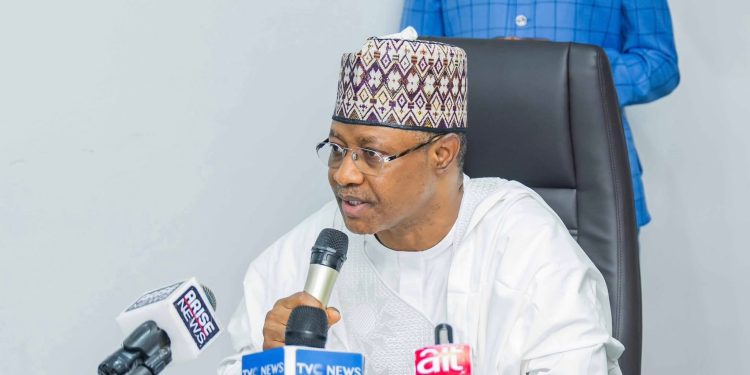The fight against terrorism in Nigeria has been a long and arduous one, with countless lives lost and communities displaced. For years, the Nigerian military has been at the forefront of this battle, often praised for its bravery and sacrifice. However, a recent statement by Governor Uba Sani of Kaduna State has sparked a crucial conversation: is a purely military solution enough to defeat terrorism? His assertion that “the military alone cannot defeat terrorism” challenges the conventional wisdom and points to a more complex and holistic approach.
The governor’s remarks are not a criticism of the military’s efforts but a candid acknowledgment of the multifaceted nature of terrorism. The ongoing insecurity, particularly in the North-West, has shown that kinetic operations, while necessary, have not been sufficient to eradicate the problem. Terrorist groups like Boko Haram, ISWAP, and various banditry groups are not just armed combatants; they are organizations that exploit socio-economic vulnerabilities, a lack of governance, and ideological grievances. A military-centric approach, while effective in neutralizing threats on the battlefield, often fails to address these root causes.
A Comprehensive Approach: Beyond the Battlefield
Governor Sani’s call for a multi-pronged strategy is a logical and necessary step. He argues that the solution lies in a combination of military action, community engagement, and good governance. One of the key aspects he highlighted is the need to address the socio-economic factors that make people susceptible to recruitment by terrorist groups. Poverty, unemployment, and a lack of educational opportunities can create a fertile ground for radicalization. When people feel marginalized and hopeless, they can become easy targets for extremist ideologies that promise a sense of purpose, belonging, and financial stability. To truly defeat terrorism, the government must invest in human development, create jobs, and ensure that basic services are accessible to all citizens.
Another critical component of this comprehensive strategy is community policing and intelligence gathering. The governor emphasized the importance of engaging local communities in the fight against insecurity. . Local communities often have invaluable intelligence that can help security agencies preempt attacks and locate terrorist hideouts. However, building trust between security forces and the public is essential. This requires a shift from a purely top-down military approach to one that fosters collaboration and mutual respect. Community leaders, traditional rulers, and religious figures all have a vital role to play in this process.
The Role of Governance and Justice
Beyond military and community efforts, the governor’s statement implicitly underscores the importance of good governance. A government that is perceived as just, fair, and responsive to the needs of its people is a powerful antidote to extremism. When citizens feel that their grievances are being heard and their concerns are being addressed, they are less likely to turn to non-state actors for justice or protection. This includes reforming the justice system to ensure that perpetrators of violence are brought to book swiftly and transparently, and that victims receive justice. The lack of accountability for heinous crimes can erode public trust and embolden criminals.
Furthermore, the fight against terrorism must also tackle the financial networks that sustain these groups. Terrorists operate like businesses, often engaging in kidnappings for ransom, illegal mining, and cattle rustling to fund their activities. Disrupting these financial pipelines is a crucial, non-military step that can cripple their operations. This requires a coordinated effort between security agencies, financial institutions, and international partners.
In conclusion, Governor Uba Sani’s powerful statement is a wake-up call for Nigeria. It is a recognition that the war on terror cannot be won by brute force alone. It requires a holistic, well-coordinated, and sustained effort that combines military might with socio-economic development, community engagement, and good governance. The road ahead is long, but by addressing the root causes of insecurity and fostering a sense of shared purpose, Nigeria can build a more resilient and secure future for all its citizens.


